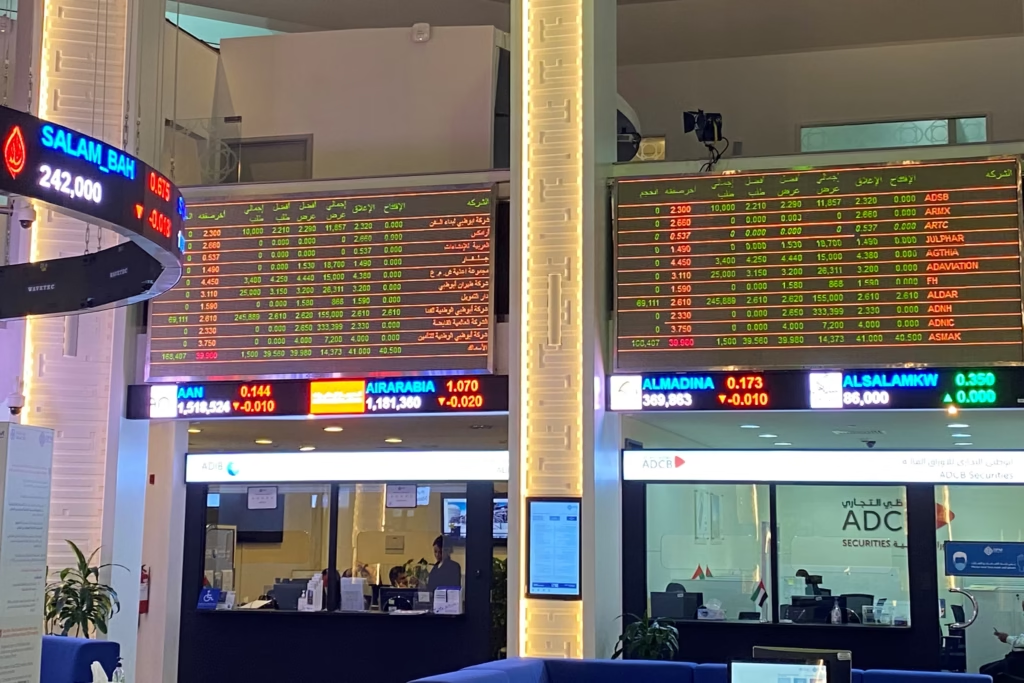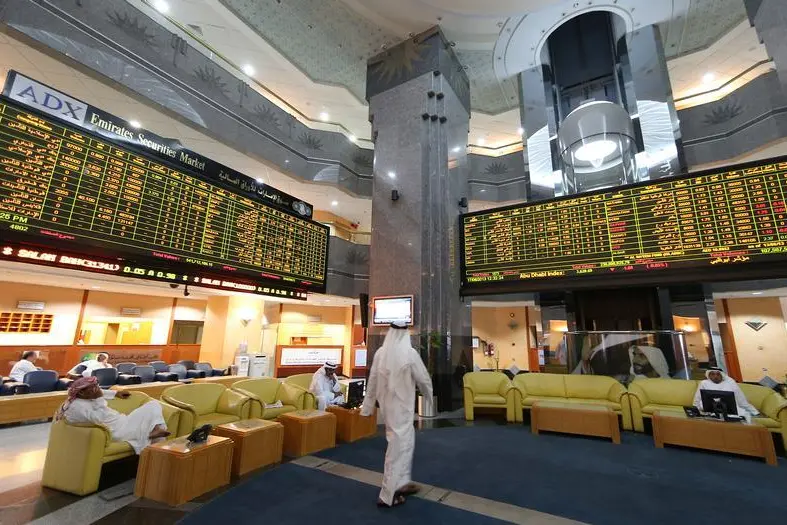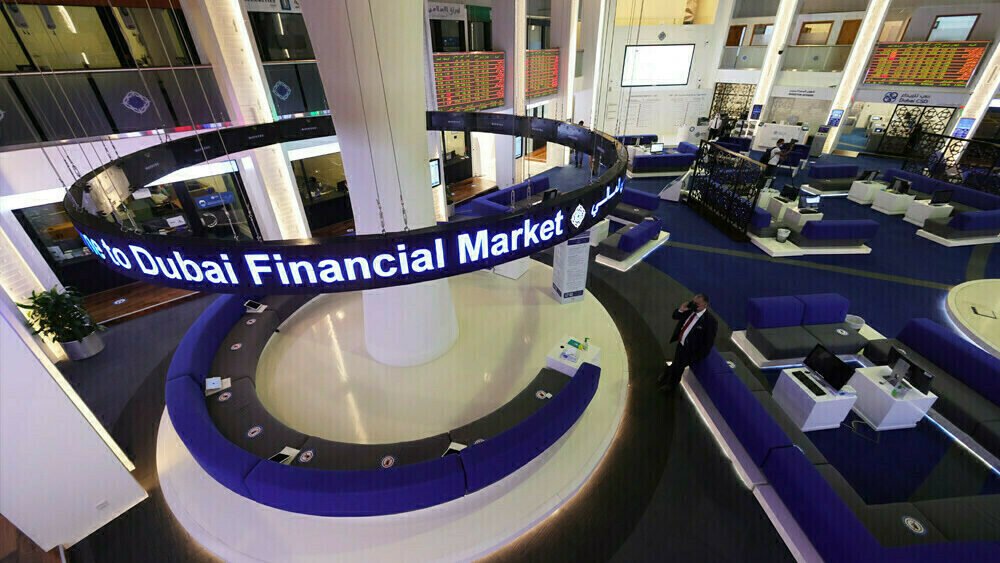The UAE stock markets faced a sharp decline as global trade tensions continued to rise, triggering concerns among investors. Both the Abu Dhabi Securities Exchange (ADX) and the Dubai Financial Market (DFM) saw significant losses, reflecting the growing uncertainty in global markets. Investors are worried that escalating trade conflicts between major economies like the US and China could slow down economic growth and affect businesses worldwide.
Market Performance
Dubai’s stock market dropped by over 2% in early trading, with major companies like Emaar Properties and Dubai Islamic Bank suffering losses. Abu Dhabi’s market also followed a downward trend, declining by nearly 1.5% as investors pulled back from riskier assets. Financial and real estate stocks were among the hardest hit, as global instability cast doubts over future economic growth.

Blue-chip stocks, which are generally considered stable investments, were also affected by the sell-off. Emirates NBD and First Abu Dhabi Bank saw declines, signaling a broader loss of investor confidence across various sectors. Analysts point out that despite strong fundamentals in the UAE economy, external global risks are making investors more cautious about their stock market positions.

Investor Sentiment
Market analysts suggest that investor confidence has been shaken due to fears that ongoing trade disputes could lead to a global economic slowdown. The uncertainty surrounding potential tariffs, sanctions, and trade restrictions has left investors wary, pushing them to sell off stocks and seek safer investment options like gold and bonds.
“The UAE markets are reacting to the global situation. Investors are nervous about how trade policies will impact not just international trade but also regional economies,” said a financial expert from Dubai.
In addition to trade war fears, concerns over inflation and interest rate hikes in the US and Europe have also contributed to the downward pressure on UAE stocks. Higher interest rates generally lead to reduced liquidity in the market, as borrowing costs increase, affecting businesses and consumers alike.
Global Impact

The trade war between the United States and China has already affected various industries worldwide. With both nations imposing heavy tariffs on each other’s goods, global supply chains are facing disruptions, leading to higher costs for businesses and consumers. Other countries are also being drawn into the trade war, adding to market instability.
Oil prices, a key driver of the UAE’s economy, have also experienced volatility due to trade war concerns. Lower demand for oil could impact the revenues of Gulf countries, making investors even more cautious about stock market investments.
“The UAE is an important player in the global energy market. Any uncertainty regarding global trade directly impacts oil prices, which in turn affects investor sentiment in the region,” said a market strategist.
Government and Business Reactions
Despite market concerns, UAE officials remain optimistic about the country’s economic resilience. The government has introduced several initiatives to boost investor confidence, such as economic stimulus packages, foreign investment incentives, and business-friendly policies. The UAE’s strong financial sector and infrastructure make it an attractive market for long-term investors.
Several businesses have also reassured stakeholders that they are prepared to navigate market fluctuations. Major corporations have focused on expanding into new markets and diversifying revenue streams to minimize risks associated with global trade uncertainties.
What’s Next for the UAE Markets?
Experts believe that the UAE’s stock markets may remain volatile in the coming weeks as investors closely monitor global trade developments. Some analysts suggest that if the trade tensions ease, markets could recover, but for now, uncertainty prevails.
Despite the market drop, long-term investors see this as an opportunity to buy stocks at lower prices. “These market dips are temporary. Smart investors will look at strong, stable companies that can withstand global pressures,” a market analyst noted.
Additionally, analysts suggest that investors should closely watch for policy changes in major economies, including potential trade negotiations or monetary policy shifts that could affect global liquidity and investment flows.
Conclusion
The UAE stock markets are feeling the pressure of global trade war concerns, with investors reacting to ongoing economic uncertainty. While short-term market fluctuations are expected, the long-term outlook will depend on how global trade conflicts unfold and whether major economies can reach agreements. Investors will need to stay alert and keep an eye on global developments to navigate the market turbulence effectively.
With government efforts to maintain economic stability and businesses adapting to market challenges, experts believe that the UAE stock market has the potential to recover, especially if global trade tensions begin to ease. Until then, caution remains the key strategy for investors looking to manage risks in a rapidly changing economic landscape.
Also read: Big Changes Coming: 87% of UAE Residents Expect Better Mental Health Services in 2025!













